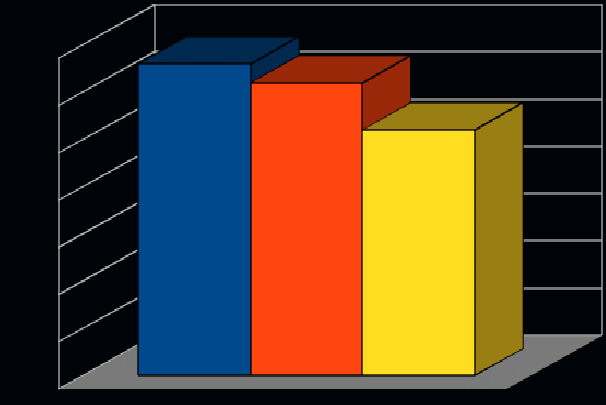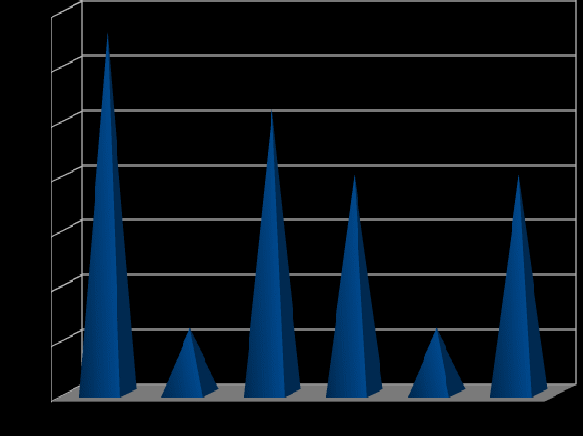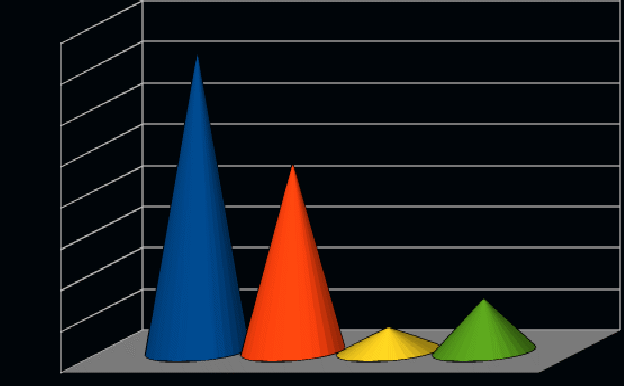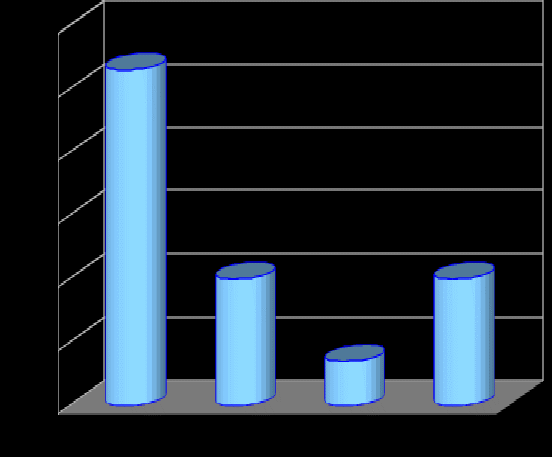Конспект урока «Радио» по английскому языку для 8 класса
Открытый урок английского языка в 8 классе
по учебному пособию М.З.Биболетовой «Enjoy English»
Тема урока: «Радио»
-
Тип урока: комбинированный
-
Цели и задачи данного урока:
Цель урока:
- развитие коммуникативной компетенции на уроке английского языка
Задачи:
Образовательные:
- закрепление лексики по теме «Средства массовой информации»;
- совершенствование навыков монологической и диалогической речи;
- совершенствование навыков аудирования.
Развивающие:
- развитие памяти, мышления, языковой догадки;
- развитие умения работать с книгой, анализировать;
- развитие умения делать самостоятельные выводы;
- развитие готовности к воспроизведению изученного материала;
- развитие умения выражать законченную мысль;
- формирование навыков взаимоконтроля.
Воспитательные:
- воспитание умения работать в парах;
- воспитание умения быть вежливым и доброжелательным речевым партнером.
3. Ожидаемые результаты
Личностные результаты учащихся:
- формирование мотивации изучения иностранных языков;
- стремление расширить свой кругозор;
Метапредметные результаты:
- развитие коммуникативной компетенции;
- развитие способности к решению речемыслительных задач.
Предметные результаты:
в говорении:
- совершенствование навыков монологической и диалогической речи
в аудировании:
- понимание на слух речи учителя и собеседника, аутентичных текстов.
4. Методические принципы, использованные на уроке:
1. Коммуникативная направленность обучения.
2. Принцип развития речемыслительной активности в овладении иноязычной культурой.
3. Принцип новизны в обучении иноязычной культуре.
Методы обучения:
- словесный;
- наглядный;
- проблемно-поисковый.
5. Средства обучения: учебник “Enjoy English” 8 класс М.З. Биболетовой, интерактивная доска, компьютер, 3 электронные презентации, раздаточный материал.
Ход урока
Приветствие. Организационный момент.
T. Good morning, pupils. I am glad to see you.
P. Good morning, teacher. We are glad to see you, too.
T. Sit down, please. Let’s begin our lesson. What date is it today?
P. It is the 15th of January.
T. What is the weather like today?
P. It is frosty, windy and snowy.
Фонетическая зарядка
T. As usually we begin our lesson from the phonetic exercises. Please, open your textbooks on page 64 exercise 10. You should listen to the tape and repeat after the speaker.
Речевая разминка
T. Last lesson we talked about different types of mass media. Now look at the screen and match words with their definitions.
Television a paper printed and sold usually daily or weekly with news,
advertisements
Newspaper the process of sending and receiving messages through the
air; broadcasting programmes for people to listen to
Tabloid broadcasting programmes (the news, plays, advertisements,
shows) for people to watch on their television sets
The Internet a newspaper with rather small pages, many pictures and
little serious news
Radio a way to communicate with your partner who might be a
thousand miles away using the computer
Основная часть
T. Last lesson we talked about different types of mass media, their advantages and disadvantages and now we are going to discuss means of mass media which is very suitable because we can get information, listen to music and interviews when we are in different places but we can’t watch the event and people who take part in the programs. We can only imagine them. Please try to guess what our theme is.
P. Our theme is radio.
T. Look at the screen. It is very interesting for me to find out your opinion. Please, answer the question.
Is radio vivid nowadays as the means of mass media?
P. Pupils answer the question.
T. At the end of our lesson you will answer the question once more and we will have a chance to compare your answers at the beginning and at the end of our lesson.
Let’s find out more about the radio. You will answer some questions after the presentation. Look at the blackboard and read them.
-
When was the golden age of radio?
-
When was the rebirth of radio?
-
What was the least expensive and the most popular entertainment during the Great Depression in the USA?
-
In what sphere of activity do people widely use radios to maintain contacts?
-
What is the modern form of radio stations?
-
Why is radio popular nowadays?
-
When do we celebrate Radio Day?
The history of the radio ( слайд 1)
Radio is based on the studies of James Clerk Maxwell, who developed the mathematical theory of electromagnetic waves, and Heinrich Hertz, who devised an apparatus for generating and detecting them. Guglielmo Marconi, recognizing the possibility of using these waves for a wireless communication system, gave a demonstration (1895) of the wireless telegraph. That equipment was improved, and in 1901, Marconi succeeded in sending the letter S across the Atlantic Ocean using Morse code
Who is Popov? (слайд 2)
Alexander Stepanovich Popov (1859-1906)
was a Russian physicist who first demonstrated the practical application of electromagnetic (radio) waves, although he did not apply for a patent for his invention.
Born in the village Turinskiye Rudniki
in the Ural mountains as the son of a priest,
he became interested in natural sciences
early in his youth.
Beginning in the early 1890s he conducted experiments along the lines of Heinrich Hertz's research.
In 1894 he built his first radio receiver.
Слад 3
In 1920 the first commercial broadcasting station in the United States, technical improvements in the industry increased, as did radio's popularity.
In 1926 the first broadcasting network was formed. It was the golden age of radio. Radio was the least expensive form of entertainment during the Great Depression, the radio receiver became a standard household fixture, particularly in the United States. Subsequent research and countless technical improvements gave us such applications of radio as facsimile , radar, and even television. Radio programming became mostly music and news and talk shows.
In 1998 the turn of the century saw a potential rebirth for radio as mobile digital radio entered the market with a satellite-based subscription service in Europe and in the USA.
After presentation pupils answer the questions.
Uses of Radio Waves (слайд 4)
Radios that combine transmitters and receivers are now widely used for communications. Police and military forces and various businesses commonly use such radios to maintain contact with dispersed individuals or groups.
Radar (слайд 5)
It is used also for sending out signals and picking up their reflections from objects in their path.
Space exploration (слайд 6)
Long-range radio signals enable astronauts to communicate with the earth from the moon and carry information from space probes as they travel to distant planets
Radio compass (слайд 7)
It is the direction finder
Internet radio (слайд 8)
Internet radio (also web radio, net radio, streaming radio, e-radio, online radio, webcasting) is an audio service transmitted via the Internet.
Internet radio involves streaming media, presenting listeners with a continuous stream of audio that typically cannot be paused or replayed.
Internet radio services offer news, sports, talk, and various genres of music—every format that is available on traditional broadcast radio stations.
Radio nowadays. (Слайд 9)
Today radio is popular mass media.
There are many radio stations worldwide.
Any of them can be caught practically everywhere. Despite the fact that where you are.
Radio day (слайд 10)
Radio Day is a special day of the development of radio in Russia.
It takes place on May 7, the day in 1895 on which Alexander Popov successfully demonstrated his invention.
Radio Day is officially marked in Russia.
T.: You have just told me that the modern form of radio stations is the Internet radio station. Now you will listen to a part of an interview with a girl named Nicky Wilson who manages her own internet radio station. Take a paper with a task for listening. You should choose the correct answer A, B, C for each question. After listening you should value a work of your neighbour. Let’s start.
Interviewer: Nicky Wilson is fifteen years old and manages her own internet radio station.
So Nicky tell us how you first got started.
Nicky: Well, I have always been interested in music. But I could never find a radio station that played the songs people my age liked without too many advertisements in between them. So, during a long conversation with my best friend, she said it would be a good idea to start up my own station on the Net and that’s how it began.
Interviewer: It must have been really difficult.
Nicky: Yes. To tell the truth, I didn’t know what to expect. Luckily, I got a lot of help from my brother, who is a computer whiz. He was happy to design a web page for me to advertise my station. My viewers could use it to learn about the station, the times to listen in and to access my show. Next I needed to buy the right equipment to play my music and accept calls from listeners. It was quite expensive but my parents helped out. The hardest part, however, was finding out how difficult it was to use all the technology. It took a lot of practice.
Interviewer: I can imagine you must have been nervous during your first broadcast. How did you manage?
Nicky: Before the broadcast, I was extremely anxious. I had advertised the first show by putting up posters around school, so I knew a lot of people would be listening and I didn’t want to disappoint them. But, when the time came, all my friends started calling in to make request and I became perfectly calm. Because of their support, I was able to put on a great show.
Interviewer: What needs to be considered when doing a live show?
Nicky: Well, firstly, how long the programme should be. It’s easy to lose track of time when you’re busy getting calls for songs and mixing all kinds of tunes. But if you have an hour show, it should be kept tp just one hour.
Interviewer: Why is that?
Nicky: Well, my listeners make time to hear my show, so I like to stick to my programme. They might have arranged other things for later on in the day. I don’t expect them to change their plans for me. Also, if your show goes on for too long, it can become too tiring. That’s a sure way of losing listeners.
Interviewer: That’s true! What about your plans for the future? What’s next?
Nicky: Well, I want to continue my radio station but also start up a new internet talk show, where teenager’s problems can be discussed. I have plans to bring in school counselors to give my callers advice.
Narrator: Now listen again.
Look at the screen. You see the criteria to value the work of your classmate and keys.
Слайд
-
5 right answers - excellent
-
4 right answers – good
-
3 right answers – satisfactory
-
2 right answers - bad
Слайд- Keys
-
2C 3B 4A 5B 6C
T: Now let’s have a rest.
Up, down, up, down
Where is a way to London?
Where? Where?
Up in the air.
Close your eyes
And you are there.
Open your eyes.
T. As you know we carried out a survey to find out if the radio is popular among your classmates and your parents. Let’s listen to the results.
P. We surveyed our classmates and now we are ready to show you the results.
Слайд 1
Do you listen to the radio?
Yes- 5 (33%)
Yes seldom- 6 (31%)
No- 4 (26%)

Слайд 2
What radio station do you prefer?
Russkoey- 5 (33%)
Rock Fm- 1 (6%)
Energy- 4 (26%)
Europe plus- 3 (20%)
Shanson- 1 (6%)
Other- 3 (20%)

Слайд 3
What programmes do you prefer?
Musical- 11 (73%)
News- 7 (46%)
Sports- 1 (6%)
Interviews- 2 (13%)

Слайд 4
In what cases do you turn on the radio?

Travelling- 8 (53%)
Doing homework- 3 (20%)
Doing housework- 1 (7%)
With friends- 3 (20%)
Слайд 5
Do you parents listen to the radio?

Yes- 13 (86%)
No- 2 (14%)
T: Now you know the results of our survey. Please, answer the question:
What is a conclusion of our survey according to the results?
P: Pupils give their opinions.
T: Now you have a short text about radio in your textbooks. Let’s read it and answer some questions. Open your textbooks on page 65 ex. 11. Look at the questions before reading.
Слайд
-
How many radio stations are there in the USA?
-
What kinds of stations exist?
-
What opportunity do you have while listening to a radio talk show?
-
Have you ever heard a radio talk show? What was it about?
-
Did you call in to ask a question or to give your opinion? Why not?
Ученики читают текст и отвечают на вопросы.
T: At the end of our lesson I would like you once more answer the question which you answer at the beginning of our lesson. Please, answer the question and explain your opinion.
Is radio vivid nowadays as the means of mass media?
Ученики отвечают на вопрос и дают пояснения, анализируя и используя информацию, которую они получили на уроке.
Подведение итогов урока
T: Thank you for the lesson. I’ll give you good and excellent marks. But you should value your work too. You should draw a sign of smile answering the question: Is the lesson interesting or boring for you? Now you give me papers with your listening.
Your homework is ex.8 page 86 (упр.8 стр. 86)
Здесь представлен конспект к уроку на тему «Радио», который Вы можете бесплатно скачать на нашем сайте. Предмет конспекта: Английский язык (8 класс). Также здесь Вы можете найти дополнительные учебные материалы и презентации по данной теме, используя которые, Вы сможете еще больше заинтересовать аудиторию и преподнести еще больше полезной информации.
